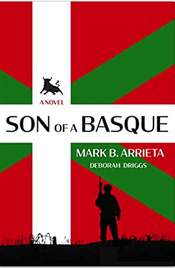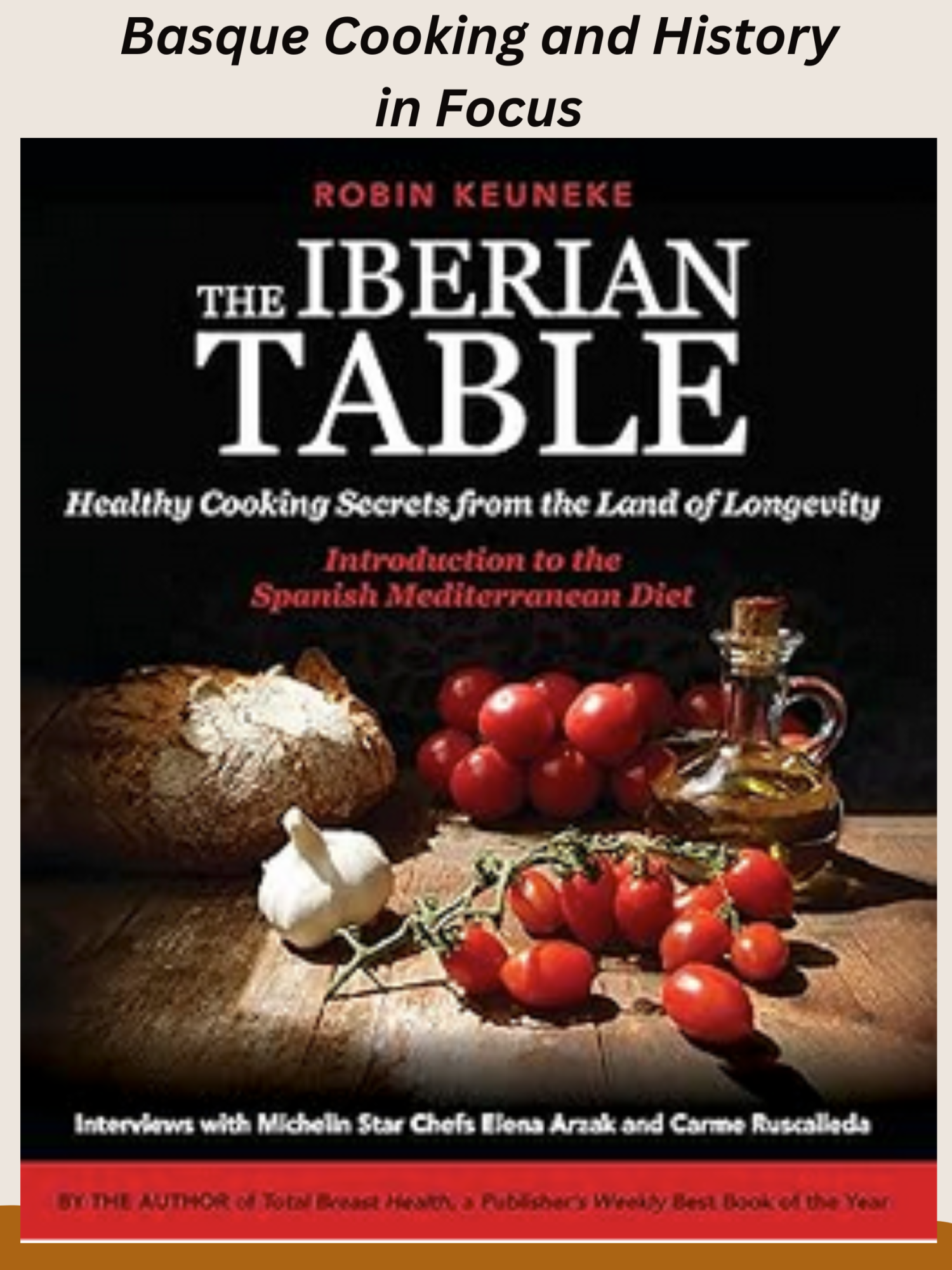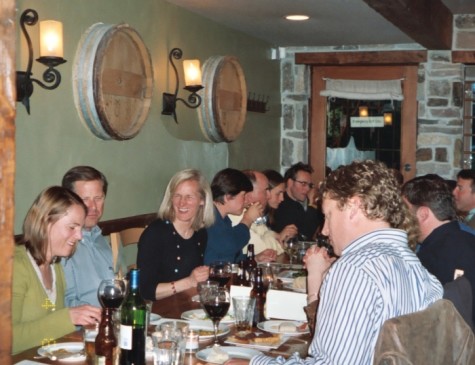Book Review: Son of a Basque

February 1, 2023
Is “Son of a Basque” the great American novel or even the great Basque American novel? No. Is it an exercise in literary experimentation, a cutting-edge or avant-garde text likely to be excerpted in Harper’s? No. It is, however, a reasonably well-written and clearly autobiographical account by a first- and only-time “novelist,” who draws the reader effectively into his own Steinbeckian world.
Both the author Mark Arrieta and his main protagonist Mark Vergara are married to women named Betty (from England) and fathers of two boys and a girl. In short, despite a modest effort to fictionalize the characters, this book (published Oct. 2022) is a personal memoir. (Click here to buy “Son of a Basque”from Amazon.)
You care about what happens to the Vergaras/Arrietas and need to know what comes next. And the work has considerable ethnographic and historical interest. This is not a microcosm of the story of the typical Basque emigrant to the American West and his descendants. The father of protagonist, Miguel, did not herd sheep (or rather did so just briefly for a few months before dying). He is the son of a Basque bullfighter who emigrated to Mexico.
Miguel married a woman who was half Comanche and part Kiowa. He then moved his family to Colorado to avoid being executed after confronting the famed revolutionary, Pancho Villa. There, he was a farm worker, picking other men’s crops and sharing the life of the largely Hispanic itinerant labor force.
So, Mark Vergara was born in the United States, “Son of a (Mexican) Basque” but also of a Native American from Mexico whose only language was Spanish. That was obviously the family’s vernacular, making Vergara fully bilingual, albeit part of a “Latino” world. Indeed, his desire for acceptance by Anglos is a recurring theme throughout the book.
RELATED ARTICLES FROM EUSKAL KAZETA
Prof. William Douglass Dedicated a Lifetime to Studying the Basques
An Artist’s Pick of the Best Books about the Basques
More Good Books on the Basques
I referred above to Arrieta’s “Steinbeckian world” when, in fact, I might just have called it Steinbeck’s “Arrietan” one. Steinbeck penned his classic “Grapes of Wrath” after observing the plight of the Okie drifters that arrived in his community during the Great Depression. In 1935, at the tender age of 17, Mark Vergara hops freight trains during a month-long odyssey as a hobo to join his older sister in San Luis Obispo, along California’s Central Coast. Indeed, we now enter the successive worlds of a man who joins the U.S. Armed Forces at the outbreak of the Second World War and becomes a gunner on a B-17 bomber plane, subsequently flying 25 missions from England against German targets on the European continent. He marries an English wife and brings his bride home to the United States.
For a few years, they live in the San Francisco Bay Area where Mark is a prison guard in San Quentin, including on death row. He re-ups in the military and is assigned to Guam, where, predicated on his San Quentin experience, he is assigned to prison-guard duty. He then spends time back in the States working as an Army recruiter, before being assigned to Vietnam. There, he has several adventures and close calls with Vietcong and CIA operatives.
You, the reader, are made privy to what it was like to be a tail gunner, a prison guard on death row, and an ambivalent soldier in Vietnam. There is really no climax to this narrative, as the book concludes with Vergara becoming a civilian. Rather than a triumphant bildungsroman, it is an account of survival, actually of several survivals. Vergara is now writing his memoir for his children and their children, so that they will know their ancestral origins.
There is the question of how much of this book, despite the title, is about being Basque. Mark Vergara is descended from a Basque immigrant (in Mexico) grandfather and is therefore two generations removed from the Basque Country. He is only of partial Basque descent himself and the son of Mexico-born parents who emigrate to the United States. He grows up in a thoroughly Hispanic world in Colorado, a state with but a small and dispersed Basque-American population. Obviously, the family did retain some ties to local Basques, given that a Basque sheep rancher gave a herding job to a destitute and dying Miguel.
However, it is clear that the Vergaras/Arrietas could not have acted out their “Basqueness” much, whether within or without the confines of their home. Rather, for the author and his protagonist, Basqueness is the ethnic stereotypical traits of reliability and honesty–the notions that Basques see things through and that their word is as good as a written contract. There is also the fact that their illusion of one day visiting the land of their forefathers proved to be a delusion. They lived for four years in England in the late fifties and never made the short trip. When they did have the opportunity to visit Spain, they chose vacationing on the Island of Mallorca and seeing Barcelona and Madrid over experiencing the Basque Country.
This book is published by Mark Arrieta’s granddaughter, Deborah Driggs, owner of a boutique publishing company, Crystal Wood Publishers. She acquired the manuscript and spent two years editing, polishing, and fact-checking the work. She, herself, is descended from the same Basque immigrant in Mexico, yet two generations further removed both generationally and genetically from him than was Mark. Her grandmother was English and her mother married an Anglo of Canadian descent. To what degree, then, can and does she consider herself to be a daughter of a Basque? This is, of course, the inherent dilemma of any diasporic work. I have known persons in the American West, Latin America and Australia with impeccable Basque ancestry who were indifferent to it, as well as others with a single Basque great-grandparent who belonged to the local Basque club.
So, what is my recommendation? After 83 years on this planet as an inveterate reader (and writer) of many books, my criterion in evaluating the latest one is: “Did I learn something interesting?” In the case of “Son of a Basque,” the answer is decidedly: “Yes.”
Click here to buy “Son of a Basque”from Amazon.
Writer William Douglass in a leading expert on the Basques. Read more about Douglass here.



 Donate
Donate


